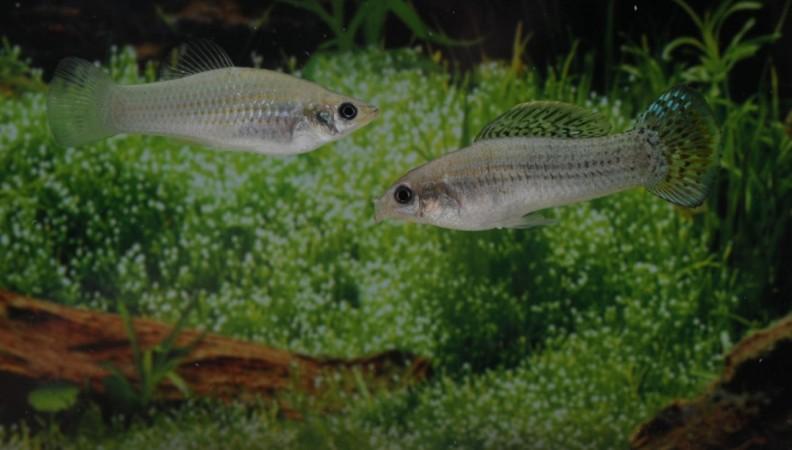
It seems Amazon warriors of Greek mythology are not the only ones who do not need male counterparts for survival. An all-female fish species called the Amazon molly has been living without male help for about 200,000 years, steering clear of sexual reproduction and only producing female clones asexually.
This fish species, endemic to the Texas-Mexico border, is stronger and fitter than ever, after surviving for 500,000 generations without sexual interaction with males. Instead, they opt for a something alike sperm-donation wherein closely related Molly fish give sperms which penetrate the egg.
It is to be noted that the entire male DNA is destroyed after penetration and the offspring is an exact replica of the mother.
"According to established theories, this species should no longer exist. It should have long become extinct during the course of evolution," says Manfred Schartl, a biochemist who holds the Chair of Physiological Chemistry at the Biocenter of the University of Wurzburg in Germany.
Schartl conducted the study on the unique fish species.
The study's findings were published in the journal Nature Ecology and Evolution.
Schartl collaborated with an international research team to sequence the genome of the Amazon molly and compare it with related species to determine how asexual reproduction has affected their gene pool. Surprisingly, the fish seem to have none of the genetic flaws or harmful mutations that are typical of such species.
On the contrary, the fish have maintained a strong level of fitness and diverse genetic combinations. "The Amazon molly is doing quite well," says Schartl. Although this species uses male sperm for penetration, the eggs are not fertilized by the male cell, which degenerates soon after.
The Amazon molly has broken the 'glass ceiling' by managing to exist so long without male contribution in their genome, a feat scientists had considered impossible until now. The Amazon molly is born out of the copulation between the Atlantic molly and the Sailfin molly about two million years ago. Scientists wish to study the biological basis of sex from the gene sequence of this species and learn more about the evolution of sex as a factor in creating stronger individuals in a species.
Another all-female mutant species is the marbled crayfish that has been invading ecosystems all over the world by multiplying rapidly. Experts say one crayfish can give birth to 200- 300 in two months. These 10-legged creatures were created 30 years ago after a mutation led to an additional set of chromosomes that enable asexual reproduction.
Several other vertebrates reproduce asexually, like hammerhead sharks and box turtles, however, none are as remarkable in genetic strength as molly fish, which grow up to three inches and survives on insects, plants, and algae.

















